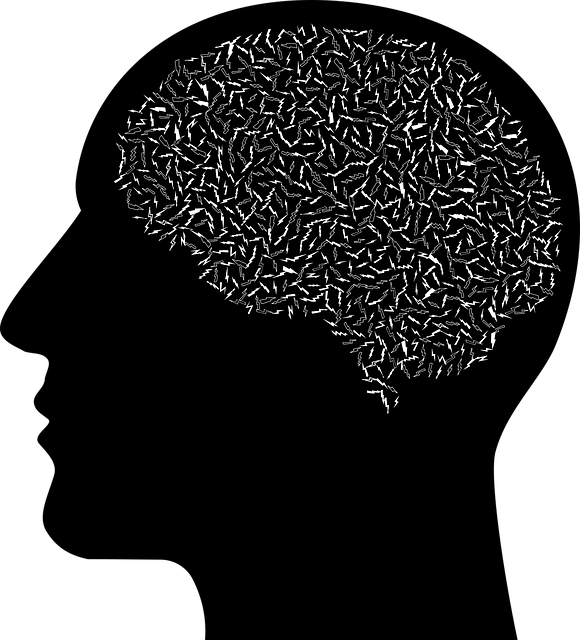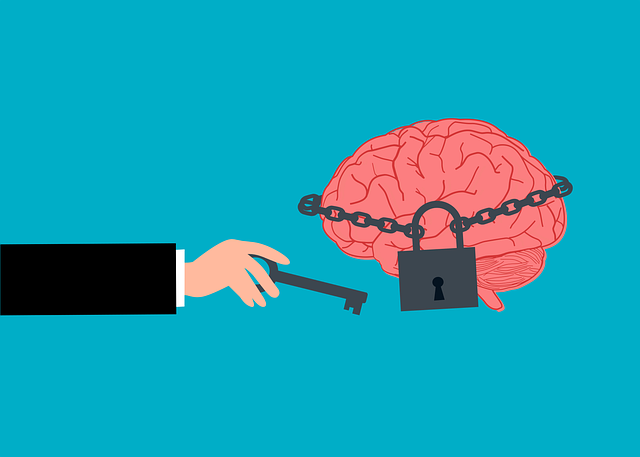TL;DR:
Codependency, a psychological issue characterized by excessive reliance on others, hinders mental wellness through anxious, depressive moods, and low self-esteem. Therapy for Adults with Codependency addresses these issues using techniques like Mental Wellness Journaling and mindfulness meditation to build inner strength and healthy coping mechanisms. Evaluating its effectiveness involves combining client self-report, standardized measures (CBT scale, SDQ, BDI), qualitative research (interviews, focus groups), and continuous program refinement based on feedback from participants and stakeholders. By integrating these approaches, therapy for adults codependency can enhance mental wellness through dynamic, adaptive programs tailored to individual needs.
Mental wellness programs are increasingly incorporating evaluations to measure effectiveness and improve outcomes. This article explores crucial evaluation methods, focusing on codependency—a complex issue impacting mental health. We delve into symptoms, understanding its effects on adults, and assessing the efficacy of dedicated therapy programs. Standardized tools and qualitative research techniques are discussed for comprehensive program evaluations. Additionally, strategies for continuous improvement through feedback loops enhance success in treating codependency, offering tailored support for better mental wellness.
- Understanding Codependency: Symptoms and Impact on Mental Wellness
- Assessing the Efficacy of Therapy for Adult Codependency
- Standardized Evaluation Tools for Measuring Program Success
- Qualitative Research Methods in Mental Health Programs
- Continuous Improvement: Feedback Loops and Adjustment Strategies
Understanding Codependency: Symptoms and Impact on Mental Wellness

Codependency is a complex psychological phenomenon where an individual becomes overly reliant on others for emotional validation and support, often at their own expense. Those struggling with codependency may exhibit several symptoms that significantly impact mental wellness. They frequently struggle with setting personal boundaries, making independent decisions, and prioritizing their own needs and desires. Instead, they tend to focus extensively on meeting the needs of others, seeking constant approval and validation from them.
This behavior can lead to feelings of anxiety, depression, and low self-esteem as individuals may internalize the emotions and experiences of those around them, taking on their responsibilities and stress as their own. In therapy for adults with codependency, addressing these underlying issues is crucial. Techniques like Mental Wellness Journaling Exercise Guidance can help individuals explore their thoughts and emotions, fostering inner strength development. Mindfulness meditation practices have also proven beneficial in cultivating present-moment awareness and promoting healthy coping mechanisms, thereby enhancing overall mental wellness.
Assessing the Efficacy of Therapy for Adult Codependency

Evaluating the effectiveness of therapy for adult codependency is a multifaceted process that goes beyond mere client self-report. To assess the true impact and efficacy, therapists should employ standardized measures designed to capture changes in maladaptive behaviors and interpersonal dynamics. These tools can range from structured interviews to behavioral observations, ensuring a comprehensive understanding of progress. For example, the Cognitive Behavior Therapy (CBT) scale for codependency can quantify improvements in self-esteem, assertiveness, and emotional regulation, which are core aspects of recovery. Additionally, measuring communication strategies within therapy sessions using models like the Transactional Analysis can highlight shifts from unhealthy to healthier interaction patterns.
Beyond individual therapy assessment, integrating feedback from support systems is vital. Family members or significant others can offer valuable insights into changes observed at home, corroborating client-reported progress. Moreover, considering Burnout Prevention Strategies for Healthcare Providers and implementing Stress Reduction Methods within the therapeutic framework can enhance overall program effectiveness. Effective communication strategies, both within the therapy room and outside, are essential to fostering a supportive environment that promotes long-term recovery from codependency.
Standardized Evaluation Tools for Measuring Program Success

Standardized Evaluation Tools play a pivotal role in assessing the success and impact of mental wellness programs, particularly those tailored for adults struggling with codependency. These tools are designed to provide consistent and measurable data, allowing professionals to track progress and make informed decisions. One widely recognized instrument is the Strengths and Difficulties Questionnaire (SDQ), which offers a comprehensive view of an individual’s emotional and behavioral well-being. By assessing various aspects such as symptoms of hyperactivity, conduct problems, and peer relationship difficulties, the SDQ helps identify areas of concern and track improvements over time.
Additionally, programs implementing Crisis Intervention Guidance and Conflict Resolution Techniques can utilize tools like the Beck Depression Inventory (BDI) to gauge depression levels and the Conflict Tactics Scale (CTS) to measure interpersonal conflict dynamics. These standardized measures contribute to a deeper understanding of program effectiveness, ensuring that interventions are addressing the core issues faced by individuals seeking therapy for adults codependency. Moreover, evaluating the Community Outreach Program Implementation can be facilitated through qualitative methods, such as participant interviews and focus groups, which offer insights into clients’ experiences and perceptions of the program’s impact on their lives.
Qualitative Research Methods in Mental Health Programs

Qualitative research methods play a pivotal role in evaluating mental wellness programs, offering valuable insights into the lived experiences and perspectives of individuals seeking therapy for adults with codependency. Unlike quantitative approaches that focus on numerical data and statistics, qualitative methods delve into the depth of participants’ emotions, beliefs, and behaviors. This is particularly crucial when exploring complex topics like self-care practices and self-esteem improvement within mental health interventions.
Through in-depth interviews, focus groups, and ethnographic observations, researchers can uncover nuanced understandings of how individuals perceive and engage with various aspects of their treatment. For instance, investigating burnout prevention strategies for healthcare providers involved in these programs can provide critical information on the impact of support systems and therapeutic approaches on both patients’ mental wellness and care providers’ well-being. Such qualitative insights contribute significantly to refining and personalizing mental health programs to better cater to individual needs.
Continuous Improvement: Feedback Loops and Adjustment Strategies

Mental wellness programs must be dynamic and adaptive to effectively support individuals dealing with complex issues like codependency. Continuous improvement is a key aspect of successful therapy for adults codependency, involving feedback loops that allow for adjustment strategies based on ongoing evaluation. This iterative process begins with gathering regular feedback from participants, mental health professionals, and stakeholders involved in the program’s implementation.
Effective feedback mechanisms can include pre- and post-program surveys, focus groups, individual interviews, and observation notes. The data collected is then analyzed to identify areas for enhancement, such as refining therapeutic techniques, improving self-care practices among mental health professionals (a crucial aspect of any robust Mental Wellness Coaching Programs Development), or adapting curriculum content to better meet the evolving needs of participants. This information guides adjustments in program design, ensuring that it remains relevant and effective in promoting mental wellness.
The evaluation of mental wellness programs, particularly those focusing on adult codependency, is a multifaceted process. By combining standardized tools with qualitative research methods, professionals can gain comprehensive insights into program effectiveness. Assessing symptoms, measuring success, and incorporating feedback loops enable continuous improvement. For individuals struggling with codependency, access to evidence-based therapy plays a pivotal role in their mental wellness journey. Understanding and implementing effective evaluation methods ensures that programs remain dynamic and tailored to meet the unique needs of those seeking support for adult codependency.














